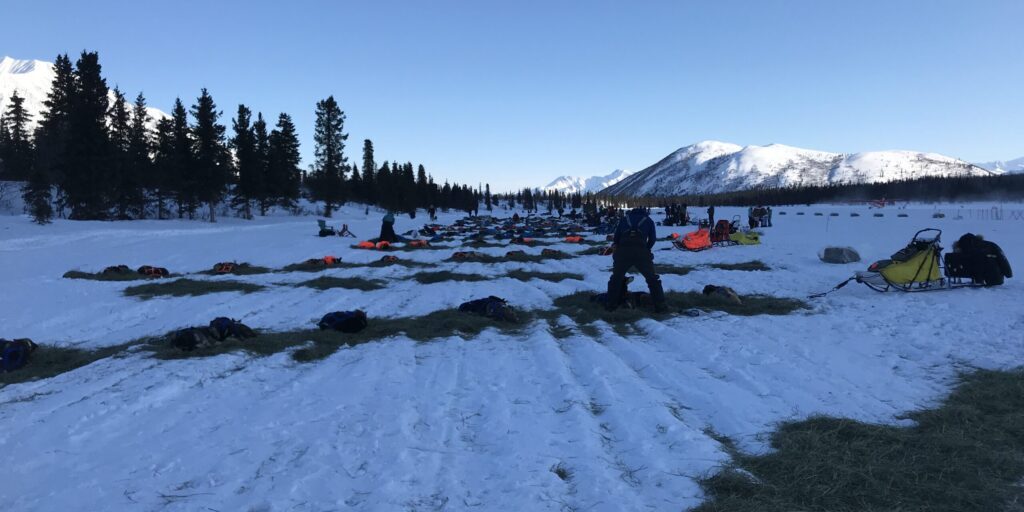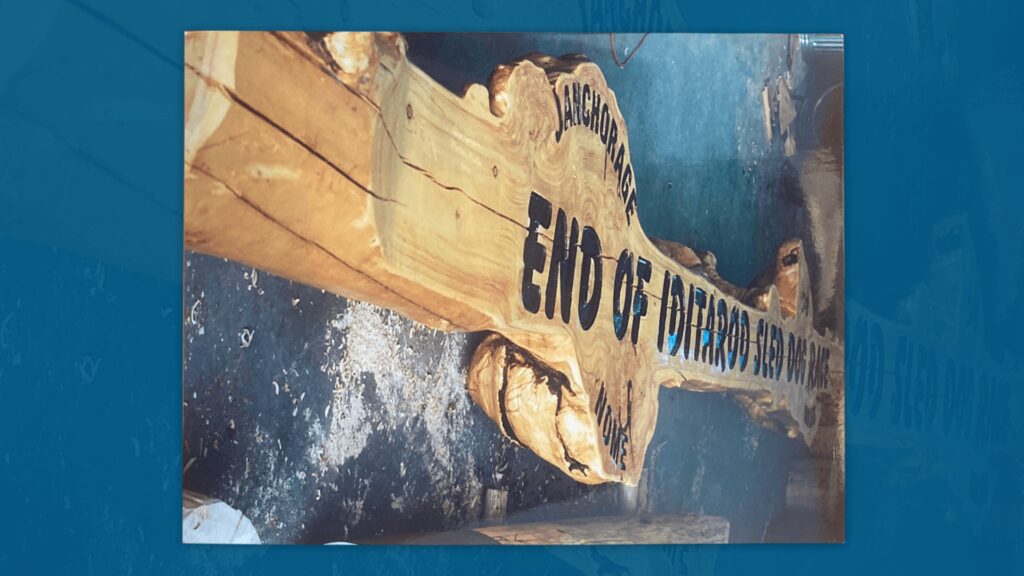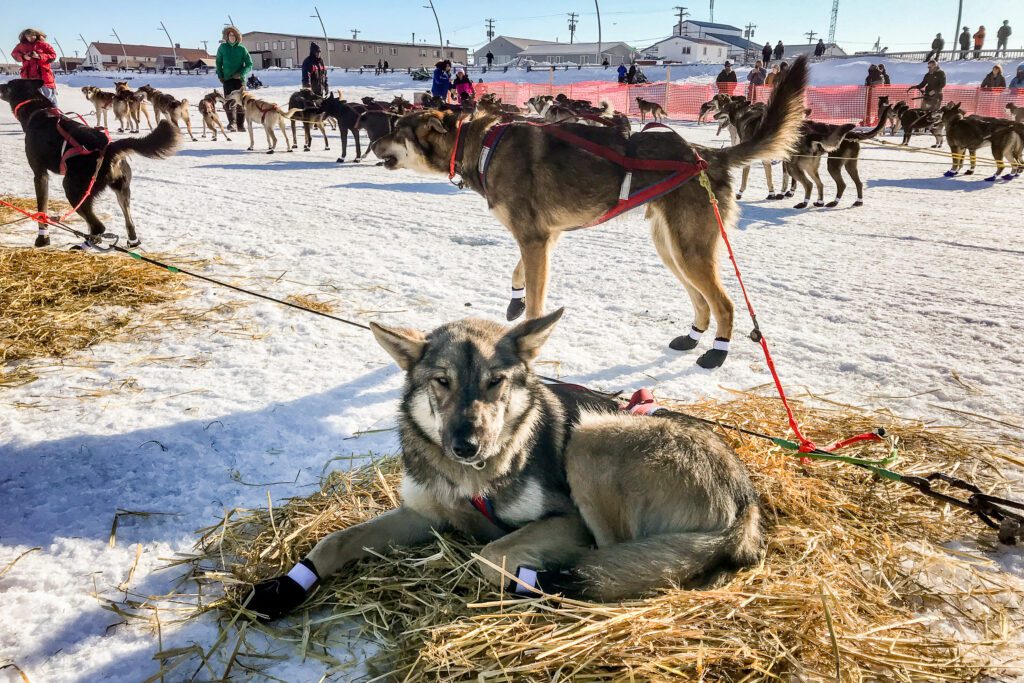33 teams made it into the Rainy Pass checkpoint before 7pm Monday night. KNOM trail reporter, Davis Hovey, reports from Rainy Pass:
In spite of earlier trail reports indicating the deep snow would slow teams down, some mushers made adjustments to maintain their dogs’ health and speed.
Mille Porsild of Denmark said in Rainy Pass she planned on dropping a dog before leaving the checkpoint, as an adjustment for the upcoming trail through the Dalzell Gorge into Rohn. One of Porsild’s dogs had a sore front tricep, and she didn’t know exactly why.
“You know I’ve never been here before, so I don’t anticipate too much. I’m just enjoying the trail and I really am. I mean it’s absolutely gorgeous, I think I came here in a lucky year.”
Aaron Peck, racing his 7th Iditarod, reached Rainy Pass slightly before 4 o’clock in the afternoon Monday and immediately set up straw for his dogs, drew a bucket of Puntilla Lake water from the nearby watering hole, and fed his team. Besides the usual chores, Peck also wrapped the legs of two of his dogs with Saran wrap.

“It’s more of a preventative thing. I have two dogs, they have wrists that have been swollen in the past due to overuse, but it’s really minor and I’m just wrapping them to prevent it from coming back. In fact, they’ve been looking great actually, I don’t think I even need to put them on.”
The other Aaron on the trail, Burmeister that is, has adjusted his run/rest schedule so as to spend more time outside of checkpoints thus far. Aaron Burmeister of Nenana [and Nome] stopped briefly in Rainy Pass, just long enough to give his dogs a snack before pushing forward to Rohn.
BURMEISTER: “I am out of here, bud.”
KNOM: “So you’re going straight to Rohn or are you planning on stopping somewhere?”
BURMEISTER: “We’ll see how the weather is in the Pass. I’m set up to camp if I need to, but I can go straight there [to Rohn], too. We just came off a good break.”
In addition to tweaking strategy or dog care, some mushers have also adjusted their sleds. Travis Beals of Seward took off his floaters by the time he arrived at the Rainy Pass checkpoint. Beals explains what these plastic add-ons do for a mushers’ sled.
“We took our floaters off – those kind of send us all over the place. It’s kind of a wider set of plastic that goes on the fronts for deep snow, but when we’re not in the deep stuff, we try not to use it. They make things a little hairy.”

As expected, Beals and the front of the pack have made individual adjustments, or not, based on their teams’ needs. All 57 teams continue to move down the trail with their thoughts turning towards that mandatory 24 hour-layover and the decision on where to take it.







